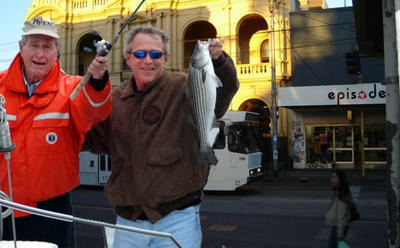Sounds a bit like something from Brokeback Mountain -- but it's actually the title of a Lost episode.
For the longest time I knew, in a sort of general, like I know about Uzbekistan, sort of way, that television episodes have titles. I, of course, never knew what any of those titles were (except for "The Trouble With Tribbles"). But with the advent of DVD suddenly I know all sorts of titles (like Hush, and Once More With Feeling).
SPOILERS FOR 1ST SEASON OF LOST (UP TO EPISODE 21)
Unfortunately
I
don't
know
how
to
do
an
"after
the
jump"
thing
on
blogger
so
I'll
be
using
this
annoying
and
ineffectual
vertical
writing
thingie.
And
now
I
ought
to
leave
more
spoiler
space
since
people
will
want
to
read
all
the
way
down
just
in
case
I
included
a
link
to
Twisp and Catsby.
DEFINITELY SPOILERS NOW -- BUT ONLY FOR THE FIRST SEASON BECAUSE I LIVE IN THE CENTRAL TIME ZONE AND HATE TV
Something I find interesting about Lost is that so many of the characters actually have daddy issues and yet the writers still manage to make each of their problems, and thus the characters, feel distinctive. Here's my "daddy issues" count:
Dr. Jack -- kicked dad out of medicine, driving the old man into a suicidal Australian drunken stupor.
Sawyer -- watched father shoot wife, then self, then grew up to be the kind of guy that made other dads do that, and killed the wrong guy to avenge his father.
Walt -- has freaky powers that terrified his adoptive dad and now his birth dad is taking over even though he has no desire to be a father.
Michael -- having problems with suddenly becoming a full-time father to Dark Phoenix.
Jin -- is embarassed by the poverty and simplicity of his own father.
Sun -- father is an over-protective psycho gangster corporate type, but she doesn't know it -- character arc for season two??
Locke -- sacrificed his spiritual son on the island in order to satisfy a harsh and demanding God -- and still hasn't received any answers.
And I think the only reason the other characters don't have daddy issues is because we haven't heard about their daddies yet (pay special attention to Kate in this regard).
It's amazing how much drama you can mine out of the same problem. Or maybe it's just Tolstoy's maxim in action: happy families are all alike but unhappy families are all fucked up in their own distinctive way. Er, to paraphrase that is.
Another thing I noted is how... melodramatic it all is -- and it works perfectly for me. Often characters I write include personal issues that are more mundane, issues that are more realistic (or at least more common).
But I suspect my approach undermines the tension. We're watching fiction. We expect things to be hyped up and more intense than our normal problems. Our connection to the material comes from being able to see reflections of our own problems in the grandiose spectacle of the fictional characters' lives.
Thursday, September 29, 2005
Sunday, September 25, 2005
Why I Hate Television
The inundation of ads for My Name is Earl worked on me -- this looks like the role Jason Lee was born to play and I swear a couple of my friends (er, and maybe me) have grown up to become this guy.
So Tuesday rolls by and I forget I'm in the central time zone -- and the show's already over. I believe it is on later tonight, like 11 o'clock (er, EDT) on Bravo. Let's see if I manage to remember.
However, that's not so bad. My Name is Earl is an episodic comedy. I'd like to see the premeire but I could probably drop in the second week without feeling my latent obsessive-compulsive desire erupt.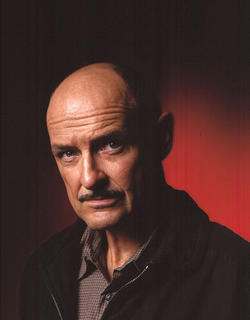
Last week I spent some 5 days or so eye-blastingly tethered to my monitor while I watched the entire last season of Lost on DVD. Amongst other talent, Lost features Terry O'Quinn -- a favorite amongst escapees of the Rutgers philosophy program. (Chris Carter must have the best casting director in the universe--seems all the secondary roles and walk-ons in X-Files and Millenium were terrific).
But the Lost season opener also seemed to be showing at central time in Texas. So now I've got to wait one full year--while studiously avoiding any mention of the show--before I can catch this season on DVD.
Some day, TiVo, you will be mine...
So Tuesday rolls by and I forget I'm in the central time zone -- and the show's already over. I believe it is on later tonight, like 11 o'clock (er, EDT) on Bravo. Let's see if I manage to remember.
However, that's not so bad. My Name is Earl is an episodic comedy. I'd like to see the premeire but I could probably drop in the second week without feeling my latent obsessive-compulsive desire erupt.

Last week I spent some 5 days or so eye-blastingly tethered to my monitor while I watched the entire last season of Lost on DVD. Amongst other talent, Lost features Terry O'Quinn -- a favorite amongst escapees of the Rutgers philosophy program. (Chris Carter must have the best casting director in the universe--seems all the secondary roles and walk-ons in X-Files and Millenium were terrific).
But the Lost season opener also seemed to be showing at central time in Texas. So now I've got to wait one full year--while studiously avoiding any mention of the show--before I can catch this season on DVD.
Some day, TiVo, you will be mine...
Thursday, September 22, 2005
Bad Motherfucker
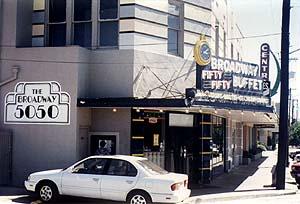
I actually live maybe 100 feet from a bar -- a place called The Broadway 5050.
Met up with cool fellow screenwriter Richard there and we talked a bit about what it's like trying to break in from the wilderness. For my non-screenwriter friends, it's generally advised to get one's sorry ass into L.A. if you want to write movies or TV.
The place has awfully good french fries -- and is completely done up as a Quentin Tarantino shrine. Pulp Fiction posters on the walls -- a Reservoir Dogs styled billboard outside -- A Big Kahuna Burger -- and even a $3.50 five dollar shake. While there Richard says how Pulp Fiction helped inspire him to start writing screenplays, shows me his Bad Motherfucker wallet, and the universe falls into place. They even had Red Stripe beer to go with my Red Stripe tee-shirt -- but not on tap.
That'd be too on the nose.
Monday, September 19, 2005
The Endless Summer

Seriously -- does Summer never end in Texas??? These graphics are from Weather.com (to paraphrase Dan -- ahhh, weather website eases the pain). But not fucking really -- instead it accentuates the pain like a fine tincture of iodine and lemon juice. In what exact circle of Hell is the heat index 88 Fahrenheit at 11 PM on September 18th?

Saturday, September 17, 2005
Young Hotshots and Old Bastards
After escaping the army at 22 I went back to school and started writing. Short stories at first then a couple novels. My idea then was to be published before the age of 25 -- because I had read somewhere that some author I respected was first published at 25 (Clive Barker? Stephen King?) and of course I wanted to be a young hotshot.
Well....
I continued my pursuit of implausible careers with many years of studying philosophy, then roleplaying game writing. (By the way, I discovered that if you first pursue roleplaying game writing, then switch over to pursuing screenwriting, your family will actually be relieved.)
Today I turn 40. Being the clever sort, I had a backup plan in case the young hotshot strategy didn't work out:
Raymond Chandler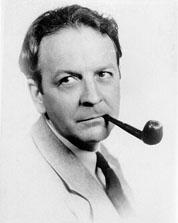 -- published his first short story at the age of 42 and The Big Sleep came 6 years later. Not sure if there's a special term for old bastards so I'll just leave it as the old bastard strategy. One advantage of the old bastard strategy is that the older you are before you get published (or produced), the more impressive the achievement.
-- published his first short story at the age of 42 and The Big Sleep came 6 years later. Not sure if there's a special term for old bastards so I'll just leave it as the old bastard strategy. One advantage of the old bastard strategy is that the older you are before you get published (or produced), the more impressive the achievement.
Well....
I continued my pursuit of implausible careers with many years of studying philosophy, then roleplaying game writing. (By the way, I discovered that if you first pursue roleplaying game writing, then switch over to pursuing screenwriting, your family will actually be relieved.)
Today I turn 40. Being the clever sort, I had a backup plan in case the young hotshot strategy didn't work out:
Raymond Chandler
 -- published his first short story at the age of 42 and The Big Sleep came 6 years later. Not sure if there's a special term for old bastards so I'll just leave it as the old bastard strategy. One advantage of the old bastard strategy is that the older you are before you get published (or produced), the more impressive the achievement.
-- published his first short story at the age of 42 and The Big Sleep came 6 years later. Not sure if there's a special term for old bastards so I'll just leave it as the old bastard strategy. One advantage of the old bastard strategy is that the older you are before you get published (or produced), the more impressive the achievement.
Tuesday, September 13, 2005
Based on True Bullshit
 I've been following The Exorcism of Emily Rose for a little bit now -- ever since I noticed it getting high ranks on the IMDB Moviemeter (which tracks web visitor interest in various films) well prior to release. Normally only the big movies crack the top ten prior to release, such as movies with Harry Potter, hobbits, X-Men, or Spiderman in them.
I've been following The Exorcism of Emily Rose for a little bit now -- ever since I noticed it getting high ranks on the IMDB Moviemeter (which tracks web visitor interest in various films) well prior to release. Normally only the big movies crack the top ten prior to release, such as movies with Harry Potter, hobbits, X-Men, or Spiderman in them.The premise sounded good to me: what happens after The Exorcist, when the police and courts want to know why they've got all these corpses lying around and the prime suspects say "well, you see, Satan was hanging out in this girl..."?
The film came out this weekend and did about twice as well as expected, which may indicate that IMDB's Moviemeter is a better indicator of audience interest than one would expect from such a blunt-object polling tool. My other suspicion is that the film's success might rely a bit on its "religious faith on trial" theme. There's definitely an audience out there that would like to see snotty rationalists get shown up in court by proving that Satan really is working in the world.
I caught it today and liked it. I was hoping it'd be more courtroom-y and less Exorcist-y and that turned out to be the case. Almost all the supernatural stuff was put into flashbacks as recounted by various people -- thus you're left wondering if they're just imagining things or the ghost business was real.
There's one big caveat though... They played up the based on a true story angle way too much. First, they open the film mentioning it, plaster it in the ads, then, in one of the worst offenses, have these little blurbs at the end of the film telling us what happened to the various characters after the trial finished.
Those characters don't even exist. But, and correct me if I'm wrong here, if you claim your film is based on a true story and include after-the-film blurbs isn't there some implication that those blurbs are not like, say the blurbs at the end of Animal House, but instead historically accurate blurbs?
I imagine many people will be wondering why I'm just now figuring this out, given the accuracy of award winning biopics such as A Beautiful Mind -- but for those films the historical blurb was accurate and I'm willing to accept that the contents of the movie part is juiced up for dramatic purposes. Though, even in those cases my patience is wearing a bit thin.
I'm thinking the MPAA should include a Bullshit Rating, maybe something like the following:
- DB -- Documentary Bullshit: Mostly true but includes some interesting interpretations of fact according to documenter's political leanings.
- BB -- Biopic Bullshit: events that can be looked up in Wikipedia are accurate (according to Wikipedia) -- everything else made up to sound juicy, unless doing so would expose us to legal action, in which case they're made to sound not juicy.
- PF -- Pure Fiction: We're making this stuff up, or pretending to make it up when we're actually just changing the name of that drunk crazy guy we knew in our twenties.
- BoTB -- Based on True Bullshit: We're making it look as much as possible like we're saying this is true, but really we just made this stuff up and figured that if we found some random actual event in the world that vaguely resembled it we'd make a lot more money.
Thursday, September 08, 2005
Paths Less Travelled
When you host a web site or a blog you'll discover that people get to your webpage via some strange routes. For my game publishing, um, imprint, Second World Simulations, I'd get a lot of links via web searches for the Second World War -- and, of course, every site gets more than a few porn links.
The recent one that disturbed me involves the phrase:
How to Eat Cats
What's more disturbing is that, as of this posting, I'm the first link in the search list!
It's as if MSN Search is declaring that I am an expert on cat eating and my blog is the foremost place on the internet to discover information about this culinary treat.
The recent one that disturbed me involves the phrase:
How to Eat Cats
What's more disturbing is that, as of this posting, I'm the first link in the search list!
It's as if MSN Search is declaring that I am an expert on cat eating and my blog is the foremost place on the internet to discover information about this culinary treat.
Monday, September 05, 2005
Grizzly Man
"I believe the common character of the universe is not harmony, but hostility, chaos and murder." -- Werner Herzog, while narrating Grizzly Man
The above quote comes near the end of this incredible documentary -- really a character study of the fascinating Timothy Treadwell. For all my friends and family who have significantly more refined tastes than myself, I think I can finally recommend something you'll like in this.
Herzog says the quote while showing some of Treadwell's footage of a grizzly. In the footage Treadwell goes off on his fairly typical love diatribe for the beast, gazing on it with the kind of affection young children might have for their mothers. And the bears definitely are cute -- at least they are when they're on the screen, and you know they're really a couple thousand miles away in Alaska.
The documentary works on a wide range of levels. I particularly enjoyed the diverse range of viewpoints presented in the film -- we get to hear from parents and friends, park rangers and Inuit. And morticians...
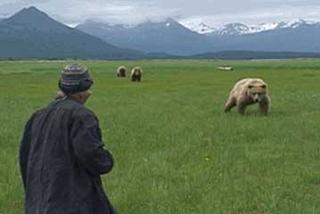
The range of viewpoints I think helps present a fuller picture of Treadwell -- not really a hero, not merely a crackpot: the kind of person who strives toward the heroic in a time and place that doesn't need that -- the bears are doing just fine (30,000 strong with not much poaching in Alaska) and he's quite possibly endangering them more than helping them. But Treadwell also strives toward some kind of greater human experience and, misguided though it may be, that's worth something.
One thing that Herzog does particularly well is pull out the reality of the people he films. Frankly, some of these people are downright flaky. For them, Herzog shows us enough to see the strangeness, but also shows us a bit more -- their human emotions, which aren't strange at all.
He does the same with the un-flaky ones -- but for these a neat little dynamic plays out. We start with the regular interview, and during this the normal people often come off a little affected. The camera is an uncomfortable thing and you need a routine for it. But Herzog leaves the camera running after the scene ends, so that the silence drags out a little bit. And in those moments after the moment you can sometimes see the real person.
He makes this explicit (even explains the technique) when presenting the footage Treadwell shot. Treadwell's planned scenes always feature Treadwell in the foreground -- nature off to the side just a bit. But since Treadwell often set up the camera himself there'd be these moments before and after the shot where he'd be running to or from the camera, or moving around elsewhere.
And it's in these found moments that Treadwell's footage becomes art -- wind sliding through bushes or a pair of foxes at play in the fields.
A common misconception about entropy, held by both nihlists and intelligent design theorists, is that entropy is the tendency toward disorder.
In fact, entropy is the tendency toward equilibrium -- the gap between harmony and chaos.
Friday, September 02, 2005
Help Find A Cure For Hyperactive Camera Disorder
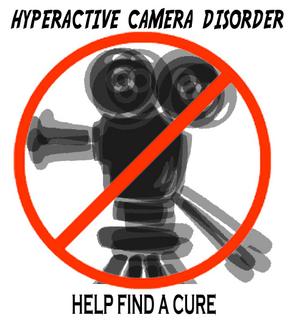
Having finished up some work I went to see The Cave yesterday and was subjected to yet another movie where the makers somehow felt that shaking the camera a lot would add suspense, or maybe tension -- but more likely nausea and a growing awareness of my butt falling asleep.
It reminded me that I wanted to post something to my blog that I had mentioned on DISC/ontent -- and this time I figured I'd add in a little icon. Feel free to steal the image for your own use, or steal and make look better.
HYPERACTIVE CAMERA DISORDER
The striking inability to... hold... the... camera... still... in a lot of modern films. I figure the invention of smaller, more mobile cameras and the fact that so many directors come out of music videos contributes to this, but, really, if the scene is so boring that you feel the need to have the camera bounce around, maybe change the scene.
This also occurs as a result of the desire of some film-makers to increase the realism and immersion of fight scenes by editing them to look the way they'd look if the audience member was watching the film while being beat with sticks by a gang of neo-nazis. Just tell the damn story.
I suspect one contributing factor to the increasing incidence of this disorder is artists transitioning from marijuana to Ecstasy as their drug of choice. Isn't it time for barbituates to come back into fashion?
Subscribe to:
Posts (Atom)
